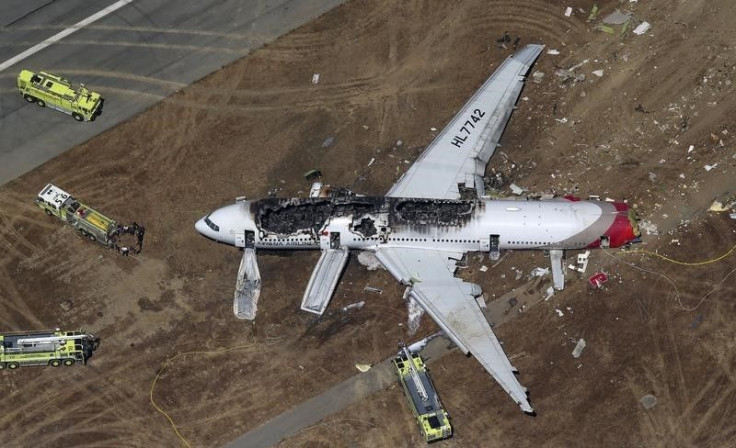Human Pilot Error Cause of Fatal 2013 Asiana Airlines Crash

Before the still missing ill-fated Malaysia Airlines Flight MH370, there was Asiana Airlines Flight 214 on July 2013. On Tuesday, authorities from the National Transportation Safety Board said the jetliner crashed and killed three people at San Francisco International Airport in 2013 because of human error on the part of its pilots.
The pilots inadvertently deactivated the plane's key control for airspeed, triggering the crash. It was carrying more than 300 people.
The pilots' failure to monitor their airspeed and altitude were also highlighted, as well as their late decision to abort the landing.
Moreover, complexities in the automation systems on the Boeing 777 - the autothrottle and auto flight director - were also seen as contributing factors to the crash accident that killed three Chinese teens and injured 200 others.
"I think the expectation of this pilot was that the auto-throttle was going to take care of him," Robert Sumwalt, NTSB board member, said during the hearing to determine the cause of the crash.
It was found the pilots had placed the auto-throttle on hold, when its main task was to prevent a plane from getting too slow.
"We have learned that pilots must understand and command automation, and not become over-reliant on it," Christopher Hart, acting NSTB chairman, said in a press conference after the hearing. "The pilot must always be the boss."
NTSB officials likewise said they believed Boeing's and Asiana's manuals might have differed or failed to fully explain how the automatic throttles system work, considering that they have been in use on Boeing 777s for 18 years.
The Asiana flight crew, Hart said, "over-relied on automated systems that they did not fully understand."
"In their efforts to compensate for the unreliability of human performance, the designers of automated control systems have unwittingly created opportunities for new error types that can be even more serious than those they were seeking to avoid," he said.
The 777, one of the world's most popular wide-bodied airliners, has never figured in an accident, but only until last year.





















